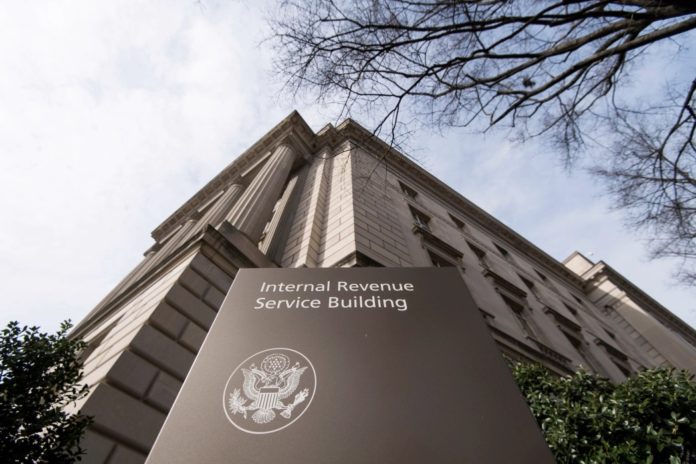
As we just closed the tax filing season, the struggles of the Internal Revenue Service (IRS) are once again in the press, and for good reason: The Agency has been hobbled by insufficient funding, leading to staff shortages and a severe lack of tax infrastructure updates. These problems have been exacerbated by an increasing workload brought on by the COVID-19 pandemic. A recent online discussion with former IRS commissioners David Kautter and John Koskinen shed more light into what outsiders have been discussing for years: The IRS needs stable funding and to be brought into 21st century.
The numbers paint a dire picture. Nearly 24 million taxpayers are still waiting for the Internal Revenue Service to process their tax returns from 2021, shattering previous backlog records. Many taxpayers see refunds being held up for 10 months or more. Needless to say, this has resulted in widespread taxpayer frustration and anger. Let’s consider some of these problems and how taxpayers will encounter them during this filing season.
The first place you might notice things are not in order is when you try to reach to an IRS agent by phone with questions. According to recent National Taxpayer Advocate (NTA) statistics, in fiscal year 2021, the IRS received a record 282 million calls, but only 32 million (or just 11 percent) of those calls were answered. Staff shortages play a key role in this issue: In the first half of 2021, call centers had approximately one person for every 16,000 calls. This year the IRS had plans to increase staffing in its customer service workforce, which has shrunk by 40 percent since 2010. But according to the same NTA report, they have not reached their goal.
Let’s say you passed the first hurdle and completed your tax forms. If you are among the 10 percent of the population who still file paper returns, you might be still waiting on the results of your 2020 tax filing. According to congressional testimony by National Taxpayer Advocate Erin M. Collins, as of February 5, there are 8.5 million paper returns from 2020 still awaiting processing. If other issues such as amended returns and other paper or electronic suspended returns are factored in, the number rises to the 23.5 million returns still awaiting manual processing.
In addition to staff shortages, existing staff is, in many cases, bogged down by antiquated technology and equipment that further decreases their productivity. According to a Treasury report, the IRS is using mail processing equipment with no significant upgrades in the past 15 years, and with limited sorting capabilities that make it a highly labor-intensive process.
These are only a snapshot of the struggles the IRS is facing. In a 2021 white paper, we highlighted problems the Agency faced in taxpayer services, enforcement, and operations support. In addition to the dissatisfaction this creates for taxpayers, there is ultimately one important point we should all keep in mind: the impact of all these problems on our nation’s treasury.
Due to lack of enforcement or delayed collection, the tax gap (i.e., the difference between what is owed and what is collected) stands at $600 billion annually, and almost $7 trillion over the next decade. That is a significant amount of money, especially under current economic circumstances where U.S. debt held by public is expected to reach $24 trillion this year (100 percent of GDP). For either party, collecting revenue by improving the IRS should be a better choice than increasing taxes on an economy still trying to regain its footing.
According to NTA, in fiscal year 2021, the IRS collected about $4.1 trillion on a budget of about $11.9 billion. This is an average return on investment of about 345 to 1. While it is clear that not every increase in IRS funding will generate the same level of return, there is wide agreement that the impact on tax collection will be positive. Other positive externalities would likely include increased taxpayer satisfaction due to improvements in service and time saving.
Congress is still talking about a potential increase in funding for IRS. According to recent news, Senator Chris Van Hollen, who chairs the appropriations subcommittee overseeing the IRS budget, stated that the Agency is expected to get a healthy increase – but not enough to deal with its long-term problems. This will be a good starting point in terms of showing the return on investment and potentially opening the door for future funding to help the Agency fulfill its existing duties. But expecting an agency already struggling to meet its most basic responsibilities to undertake more work to administer the government’s social policies (such as the distribution of the child tax credit), or, as some policymakers have proposed, to take on vast new responsibilities with government-run tax preparation schemes is unwise. As the two former commissioners mentioned, any new resources should be devoted to fixing the critical, immediate problems facing the agency to help make the already unpleasant task of filing and paying taxes less so.
Each year millions of hard-working Americans commit to filing their complicated tax returns by the mid-April deadline. It is time to provide the IRS with the funding and the resources it needs to update its infrastructure so it can meet its side of the obligation and fulfill its basic duties.
Pinar Çebi Wilber is Executive Vice President and Chief Economist of the American Council for Capital Formation.






